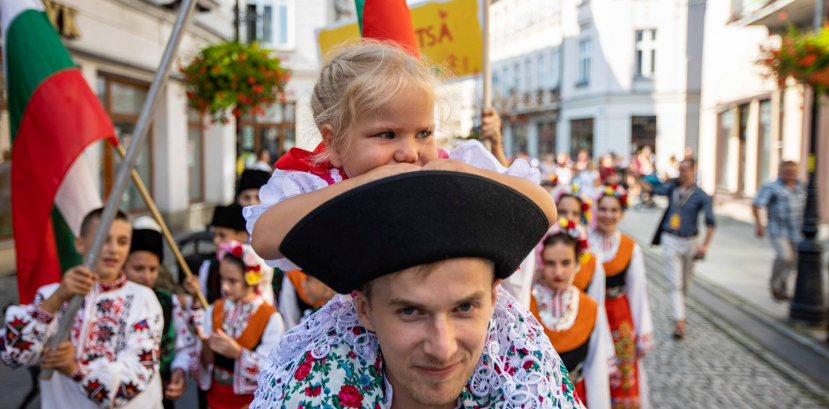“The child is important, not because he needs our love, not because he needs our protection, not because he is a poor beggar, but because he is the creator of man.”[1]
Has anyone conferred greater dignity upon the child than Maria Montessori did in her “1946 London Lectures”? Protesting against the words by the great Italian pedagogue, we might ask: does the child then not need our love, our protection, and all other elements necessary for life? That is not the point Montessori is making here. Instead, she puts forth a proposition explaining why we owe all this to the child.
Let us look around. Let us take a closer look at the adults that we share our daily existence with, or that we only pass by on a tram, bus, at a petrol station, on a beach, or in a theatre foyer. They are kind, nice, open, but they can also be arrogant, self-contained or hostile... Can we - and I think it might be worth trying - imagine each one of these people as a child? After all, each one of them once was a child! Each and every one of them! And I believe it is obvious to all of us that that child did not just fall asleep one day, and the next morning woke up as an adult. It did not shed the child’s skin to put on an adult outfit. All that the child once was is still to be found in the adult. It has been transformed, digested; in some cases it has been accepted, in others it remains unaccepted. But it is all there.
Perhaps one day - but that is a terrifying vision - it will be possible to clone humans. Then, men will spring up already as grown ups. For the time being, everyone of us on the way to adulthood must pass through the stage of childhood.
The observation made by Maria Montessori is that mankind has done away with this reflection, or maybe we have never entertained it? Ignoring the truth contained in the saying: “the parish priest forgets that he was a clerk,” adults fail to appreciate children, underestimate their role in society; they do recognise them as humans, but humans not in their own rights, still incomplete, somehow substandard versions.
And after all, the Polish (and maybe not just Polish) culture has some other sayings worth invoking here: “Whatever Johnny does not learn, John will not know,” or a pithier one: “Whatever the shell absorbs in its youth, it will smell of in old age.”
It is so painfully obvious: children living in an environment filled with violence will not one day realise that kindliness is the way to live their lives, because the childhood years were such a hard time. Instead, they will give back to the society all that they have absorbed: violence. Unless someone wins them over to a different path, that is... they saturate the shell with some life-giving juice, and the principle whereby an adult person's character is a consequence of a child’s experiences will thus be preserved.
Outstanding pedagogue Janusz Korczak had a thorough grasp of this principle, when he said: “there is no child - there is man.” The principle was also familiar to Jan Zamoyski, who in the foundation act of the Zamoyski Academy (1600) stated the following: “such are republics as the education of their youth.” This is because adulthood does not begin at the age of eighteen or twenty one... these ages mark majority, and one understood in the conventional sense for that matter. Adulthood begins at birth. Or even earlier than that.
And if it is so important what the shells absorb, may they absorb dancing, singing, but above all comradeship and awareness that differences between us lie in that which is superficial, while that which connects us runs deep down in us. “Children’s friendship builds peace of the adults’ world” goes the motto of the FESTIVAL OF THE CHILDREN OF MOUNTAINS. Indeed! Because children build future adults within themselves.
“Wherever man exists, children are born. And if we direct the love and attention of men and women to the child, we must remember that it is not the child to whom we direct their attention — but to all those men and women who will one day be adults.”[2]
Kamil Cyganik
Festival press officer
[1] Maria Montessori, The 1946 London Lectures.
[2] Ibidem.

